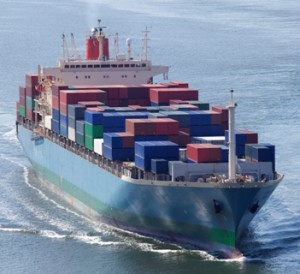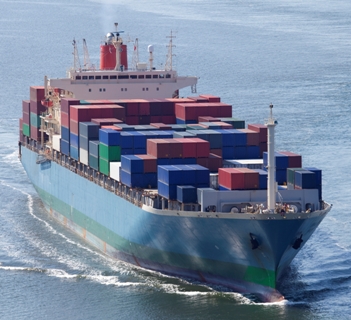 The government plans to review whether it has the legal power to regulate charges of international shipping lines operating in the Philippines, following stakeholders’ claims of high charges levied by the carriers.
The government plans to review whether it has the legal power to regulate charges of international shipping lines operating in the Philippines, following stakeholders’ claims of high charges levied by the carriers.
The Department of Trade and Industry (DTI), which sits on the Maritime Industry Authority (Marina) Board, an attached agency of the Department of Transportation and Communications, will be proposing to Marina a review of its mandate and the study of the legal basis for regulating charges of foreign shipping lines. This is one of the recommendations that came out of the April 30 meeting attended by representatives of DTI, the Land Transportation Franchising and Regulatory Board, Philippine Economic Zone Authority, Export Development Council, foreign shipping lines, truckers, and importers.
(It must be noted that since last year, there have been moves at Marina to review and expand its charter to among others, accredit and regulate international freight forwarders – a function currently under the purview of DTI – as well as local charges of international shipping lines.)
The April 30 meeting was held after Senator Paolo Benigno Aquino IV, in a hearing on updates to the Manila port congestion, asked DTI and LTFRB to discuss further with truckers and shipping lines why their charges remain at pre-port congestion levels despite the easing of congestion.
DTI, through its Consumer Protection and Advocacy Group headed by Undersecretary Atty. Victorio Mario Dimagiba, will also look at components of shipping line charges and see if it’s possible to “utilize the public-private sector model” in determining charges. No details about this model were provided.
Marina’s mandate, under Presidential Decree No. 474 that created the agency, states it can “prescribe specific policies in the determination of just and reasonable passenger fees, freight rates and other charges relative to the operation of inter-island vessels.”
But some industry insiders say that while Marina’s jurisdiction seems encompassing – it covers “all persons, corporations, firms or entities in the maritime industry of the Philippines” – it is not exactly clear whether the jurisdiction covers shipping lines with foreign principals.
Moreover, it is not the practice by any government to regulate international freight rates so any effort advocating such would most likely fail.
The most local industry can expect is for government to have a say in the imposition of local charges levied by international shipping lines such as the port congestion surcharges (PCS), emergency cost recovery surcharge (ECRS) and container cleaning fee.
Association of International Shipping Lines (AISL) general manager Atty. Maximino Cruz said regulating foreign carriers might impact on the competitiveness of the shipping industry.
“It might discourage shipping lines” and push them to skip or leave the country “because of an anti-competitive environment,” Cruz said.
“The lines always believe in market forces.”
This same sentiment was echoed by Ernesto Ordoñez, representing the Philippine Chamber of Commerce and Industry at the meeting, who said they don’t want regulation of carrier charges as they believe in a free market, noting there is such a thing as “fair charges.”
He added that by reviewing components of shipping rates, carriers that charge out of greed will be exposed.
Trucking rates coming down
For their part, some trucking groups have committed to bring down their rates; others are still reviewing how much rates can be cut.
Starting April 15, the Confederation of Truckers Association of the Philippines (CTAP) reduced its guide rates by 10% from its 2014 rates. The 2014 rates, issued as a reaction to the Manila City truck ban, were 50% higher than the CTAP 2011 guide rates, still making the 2015 guide rates 40-percentage points more than pre-port congestion levels.
An official from the Integrated North Harbor Truckers Association said the group will probably cut rates by 5% to 6%.
Meanwhile, as of April 30, 10 shipping lines—APL, COSCO, Sinotrans, Wan Hai, RCL, PIL, OOCL, SITC, Evergreen, and TS Lines—have lifted their PCS, according to AISL’s Cruz. Maersk Line will follow suit on May 1.
Together, these carriers account for 70% to 80% of the total volume of import containers going through Manila ports.
Cruz said AISL will meet with truckers to further discuss truck rates and how these affect the ECRS of shipping lines.
Cruz explained that the PCS and the ECRS are entirely different charges, unlike some claims that carriers merely renamed PCS to ECRS.
PCS is the cost carriers incur when they queue to berth, while ECRS covers landside costs, including trucking fees for transporting empty containers from container yards to terminals for repositioning out of the country as well as other ancillary costs.
Cruz said lines previously could absorb the landside cost but could no longer do so because of the still high trucking rates.
He noted not all shipping lines impose ECRS.
Moreover, Cruz clarified that the container imbalance charge is not a new charge, but has been imposed since 2010 due to the country’s container imbalance, in which only one out of four imports is shipped out laden and the three remain empty.
Cruz said he has issued a memo to AISL member lines to “evaluate whether the appropriate time has come (for) the possibility to remove the emergency cost recovery surcharge.”
He added that AISL cannot interfere with the individual decision of its 39 members but can “perhaps exercise moral suasion” through dialogue.
In all of this, he said importers “have the option to choose what shipping lines could offer the most efficient service and the cheapest rates.”
Meanwhile, the Department of Justice-Office for Competition (DOJ-OFC) will also study the “reasonableness” of trucking and shipping line charges as part of its mandate. Jomar Dans, DOJ-OFC economist, said the study will look into possible collusion or rate fixing by truckers and shipping lines. – Roumina Pablo





